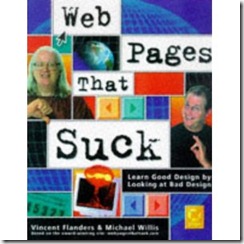 It’s easy to forget that the whole world is NOT paying attention to your every move–especially if you freelance online. But who really IS paying attention?
It’s easy to forget that the whole world is NOT paying attention to your every move–especially if you freelance online. But who really IS paying attention?
I don’t write that to be insulting. I write that to be ENCOURAGING. As in, who really knows what you’ve been charging for your freelance services in the last year or two? Sure, if you publish a rate card online you’ll need to be a bit careful when adjusting your fee structure, but when it’s time to talk fees with a new client it may be a good time to ask yourself if it’s time for a raise.
Even a small one.
One of the most difficult parts of the freelance game for many is staying motivated in the tough times. Getting compensated what you feel you’re worth–or at least within spitting distance–is part of that motivation. Have you been working for peanuts? Working too long for peanuts? Have you been working at a reasonable, but somehow still not quite satisfying rate? When you’re the boss, the only person to ask for a raise is YOU.
I struggled with that concept for ages…how could I justify charging my new client more when I was still working at a lower rate for others? When I realized that I wasn’t cheating, but offering my older clients a longevity discount, that’s when it occurred to me that I could indeed up my fee when warranted, and not worry at all about the idea that I might be fudging numbers, shortchanging a newcomer or asking for something I didn’t really earn.
The more experience you get as a freelancer, the more your inherent value as a freelancer goes up…unless you do shoddy work, of course. But this post isn’t aimed at the half-hearted, substandard, or just-barely-good-enough types. I’m talking to you, Mister and Miz Hardworking Freelance Person. Ask yourself–are you due for a pay increase? I bet the answer is “Yes”.
Joe Wallace writes music AND writes ABOUT music. He’s currently working on a video installation project for a gallery opening to be announced soon, sound design and ambiance for an art opening in Ohio, and polishing up his manuscript for WTF Records: The Turntabling.Net Guide To Weird and Wonderful Vinyl. Contact him: jwallace(at)turntabling(dot) net.





